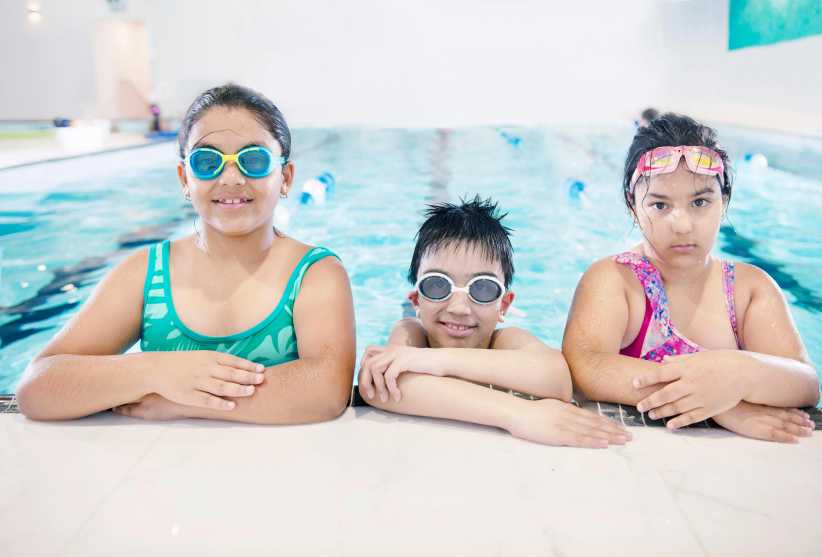Julia Harquail is the mother of three children, and her youngest daughter, Catherine, has Down syndrome. When Catherine was born, the family began a journey into a new world full of acronyms (PT, OT, CPSE, ADHD, IEP) and the unknown. Their experiences led Harquail to co-found The IDEAL School of Manhattan, an independent elementary school that welcomes children with varying abilities and educates children with special needs alongside their peers without special needs. For families who think their child may have special needs, Harquail discusses—parent to parent—some of the challenges that lay ahead, along with some key resources parents can access for information and support.
Can you describe what it means to have special needs? Special needs is a term that is used to encompass a broad variety of diagnoses, including learning disabilities, developmental delays, medical issues and behavior issues. A child diagnosed with autism, auditory processing disorder, spina bifida, Fragile X syndrome, dyslexia or ADHD is considered to have special needs, and those are just a few examples. I have found that people have varying definitions of what it means to have special needs based on their own experiences and perspectives.
How might a parent know that his or her infant or toddler has special needs? Some special needs will be diagnosed at birth — we learned that Catherine has Down syndrome in the hospital right after she was born. Other special needs may become evident as a child grows. If you have any concerns about your child’s health or development, talk with your pediatrician or your child’s teacher. They may suggest that your child be evaluated to determine whether he or she has any specific challenges or developmental delays. Once you have a better understanding of your child’s needs you can move forward to provide him or her with the support they need.
How can families educate themselves about their child’s special needs and the challenges that they may face? There is a wealth of information available to parents of children with special needs. When you search the internet, you can find websites with information about special needs in general, specific diagnoses, how to navigate the special education system, et cetera. Woodbine House and Corwin Press are two publishing companies that specialize in books about special needs that offer practical advice on how to support your child’s development. These books can be purchased online and can also be found at Barnes & Noble stores, which have excellent special-needs sections. The one caution I would give parents about books is that there are many in print and in libraries that are terribly out of date and contain misinformation — do not read them if they are more than 20 years old! There are also national organizations that advocate for people with special needs that have local support groups for parents. The National Down Syndrome Society (NDSS), for example, offers new parents and their pediatricians comprehensive information packets about Down syndrome and has local affiliates across the country. There are also informal referral networks within New York City that can introduce you to other families and children with similar challenges. When Catherine was an infant, we met several other families with children with Down syndrome through her therapists and our pediatrician. We hosted a brunch in our home for about 20 families and ended up creating our own informal support group of about 6 families. We would get together with the kids, have moms’ nights out and have dads’ gatherings. We shared information about the best doctors, enrichment programs, therapists and more. The friendships I developed were invaluable to me both practically and emotionally. In fact, I met Audra Zuckerman and Michelle Smith, my partners in founding The IDEAL School, through this informal group.
What types of support are available, and can children outgrow or overcome their special needs? Physical therapy, occupational therapy, speech and language support, sensory integration, play therapy and special education are all examples of the types of support available to help children learn and grow. Through PT, children are actively taught gross motor skills, OT helps with fine motor skills and special-education support can help children learn in their own unique way. Some special needs will be “outgrown or overcome” through therapeutic support — children may catch up to their peers and no longer need any additional therapy. Some children with special needs will need lifelong support to help them live independently in adulthood.
Can you briefly describe the main funded programs available to children with special needs? Services for children from birth to age 3 are provided by the Board of Health through the Early Intervention Program (EI). These services are provided by agencies that contract with the DOH — Stepping Stone and The Cooke Center are the two agencies with which we worked with. Catherine received PT, OT, speech and language therapy, and special education support in our home, with the services beginning when she was only 4-months-old. Parents also have the option to have Early Intervention support for their child provided in a school- or center-based program. Support for older children is provided by the Department of Education though the Committee for Preschool Special Education (CPSE; ages 3-5) and by the Committee for Special Education (CSE; ages 5 and up). Our experience with CPSE was favorable, and we continued to work with the Cooke Center for Catherine’s services when she turned 3 and attended The Brownstone School, of which her brother and sister were alumni. Catherine’s SEIT (special education itinerant teacher) supported her within the classroom 15 hours per week, and she continued to have OT, PT and speech therapies at home. Now that she is in elementary school, her services are provided through the CSE, and our experiences with this agency have been less favorable.
Are there common challenges that children and their families may face? The specifics of each family’s experiences will differ, but there are some things they may find common to their experiences. Unfortunately, when a child has special needs, conversations with professionals, friends and even family members often center on what a child can’t do and not what he can do. Each child is unique and full of possibilities, and that positive perspective sometimes gets lost in the battle to do what is right for your child. Our biggest challenge, and that of many of our friends, has been to find the right school for our child with special needs. That was a motivating factor in founding The IDEAL School of Manhattan. I have found that there is still the tendency to assume that all children with special needs should be educated in segregated environments, yet by law every child is entitled to a “free and appropriate education” in “the least restrictive environment.” A segregated special-education class is one of the most restrictive environments. Fortunately, we are on the cusp of a significant change in education, and NYC public schools are beginning to offer inclusive CTT (collaborative team teaching) classrooms where children with special needs are fully integrated and educated alongside their “typically” developing peers. The IDEAL School is the first independent elementary school in NYC to embrace inclusion and the CTT model schoolwide. Having a child with special needs makes you a different person and, hopefully, a more accepting and understanding person. It is challenging, informative, wonderful, frustrating, rewarding, complicated, fulfilling and sometimes scary — adjectives any parent might use to describe his or her experiences with any child. “We are all different; that is what makes us all the same” is slogan of the NDSS. Having a child with special needs may take you in directions you didn’t anticipate, but as my pediatrician told us when Catherine was born, “She is a baby; take her home and love her.”%uFFFD
Resources
Below is a list of evaluation centers that work with children with special needs. There are many more, as well many individual specialists, and for a more comprehensive list we recommend “A Parents’ Guide To Special Education In New York City And The Metropolitan Area,” by Laurie Dubos and Jana Fromer. Evaluation Centers:
Bank Street Family Center 610 West 112th Street, 212-875-4412, www.bnkst.edu/fc.
Cooke Center For Learning And Development 475 Riverside Drive, Suite 730, 212-280-4473, www.cookecenter.org.
Center For Child Development And Learning Of The Jewish Board of Family & Children’s Services 120 West 57th Street, 212-632-4499, www.jbfcs.org.
Lenox Hill Hospital Center for Attention & Learning Disorders 1430 Second Avenue, 212-434-4594.
NYU Child Study Center 577 First Avenue, 212-263-6622, www.aboutourkids.org.
Stepping Stone Learning Center 41 Colebrook Drive, Rochester, New York, 585-467-4567, www.steppingstoneslearning.com.




















